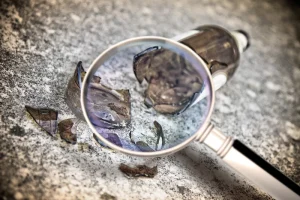
Why Do I Sneeze When I Drink Alcohol?

Some people with alcohol intolerance find that certain types of alcoholic beverages make this symptom worse compared to having other drinks. Many report that red wine, in particular, can make a stuffed up nose much more likely than compared to other drinks like vodka or rum. In addition, some beverages contained in alcohol are allergens that serve as triggers for existing allergies. If you have a true alcohol allergy, the only way to avoid symptoms is to avoid alcohol entirely. Even a small amount of alcohol can trigger a severe reaction. Read the ingredient lists of foods and drinks, ask restaurant staff for information about menu items, and avoid products that contain alcohol.
The Best and Worst Drinks To Consume if You’re Battling Seasonal Allergies
Colds cause mucus production, which in turn stimulates various nerves within the nasal mucous membranes. Snatiation is likely genetic and doesn’t cause any health problems. If you notice that you sneeze more after large meals, try eating smaller meals or eating slowly. Keep reading to learn more about why you sneeze after eating and how you can prevent sneezing fits after eating in the future. The amounts of histamine vary between wines, but generally, there is more histamine in red than white wine.

Foods and Drinks to Avoid If You Have Osteopenia
Kombucha is typically praised for its gut-boosting benefits, however, Hultin says it can help bolster your overall health to help combat seasonal allergies. In most cases, alcohol-induced sneezing is harmless and not indicative of an underlying medical condition. However, if you consistently experience severe sneezing or other concerning symptoms, it is recommended to consult a healthcare professional. The sneezing reflex after drinking alcohol is primarily caused by vasodilation, which increases the sensitivity of the nerve endings in your nasal passages. ‘ A person experiences this reflex when their stomach is full and becomes stretched.

How can you treat alcohol allergy?

Researchers found subjects that consumed wine experienced greater incidences of common allergy symptoms, such as nasal blockage and discharge, sneezing, and other respiratory problems. “This study links greater incidence of allergy symptoms and respiratory conditions, in particular, with the consumption of both red and white wine,” Hultin adds. When you take sneezing after drinking alcohol a sip of alcohol, your body triggers a reaction in which your blood vessels widen and blood flow increases. As a result, the nerve endings in your nasal passages become more sensitive. This increased sensitivity can lead to a sneeze reflex being triggered, causing you to sneeze. Another common symptom you may experience is a stuffy nose or nasal congestion.
The nurse explains that this is due to the presence of sulphites, which preserve many alcoholic drinks. “For some people with sensitive airways, such as asthmatics, consuming sulphites in alcohol may cause wheezing,” she explains. You should never ignore the symptoms of an allergic reaction. If left untreated, an allergic reaction can quickly become worse. Higher alcohol use and cancer american cancer society histamines in your drinks mean that you’re more likely to react to an allergy trigger because you’re body is already elevated.
Side Effects of Mixing Alcohol With Caffeine

- Problems in the immune system cause an alcohol allergy to develop, while genetic problems in the digestive system tend to cause alcohol intolerance.
- It’s possible to be allergic to alcohol, but it’s not very common.
- Nettle tea resembles green tea thanks to its similar earthy, grassy notes.
- If you have this variant, it causes your body to produce less active ALDH2.
- Gustatory rhinitis is a type of nonallergic rhinitis that’s caused by eating certain foods, usually spicy or hot ones.
About Mayo Clinic
- There are ways your child’s school can help prevent or stop infections.
- With a little research and careful label reading, you may be able to find beer that doesn’t contain that particular allergen.
- If your body doesn’t produce enough active DAO, you may react to histamine in foods and beverages.
- Nearly 1.2 percent of adults in the United States are allergic to wheat.
- That’s because beer contains histamine, produced during fermentation (yeast converts sugars to alcohol).
- Some people sneeze after eating, but doctors still aren’t completely sure why.
- The most common of these compounds are sulfites, which are typically highest in beer, brown liquor, and cider.
© 2021 Oak Tree. All rights reserved.


Comments are closed.